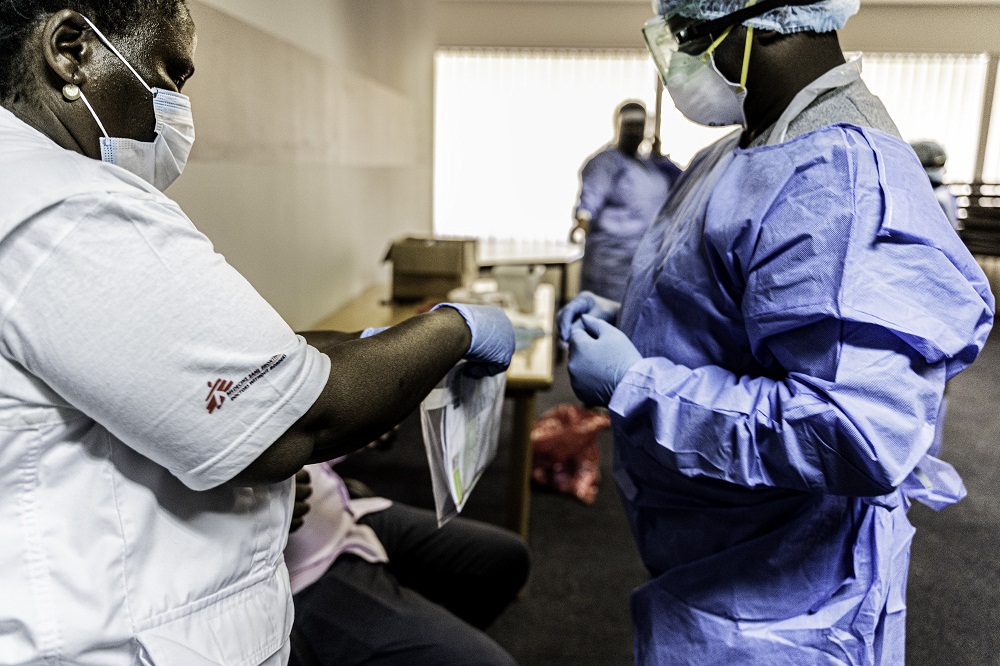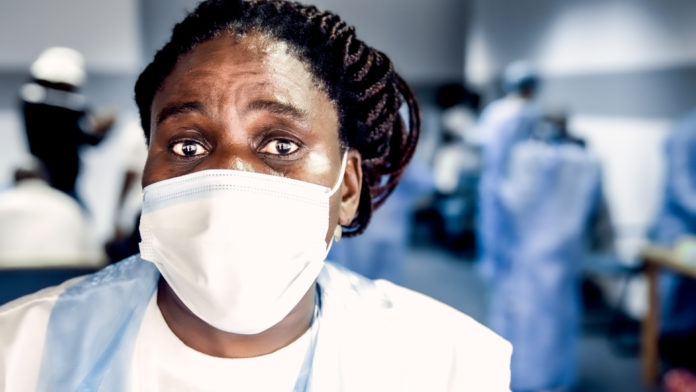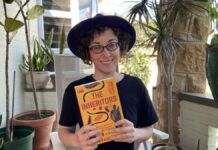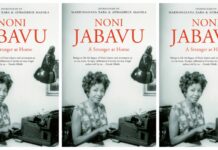AS TOLD TO
Bhelekazi Mdlalose is a forensic nurse working with Doctors Without Borders (MSF Southern Africa). As a part of the health workers’ response to COVID-19, Mdlalose has joined other MSF fieldworkers to support the department of health as a contact tracer. Contact tracers are “those who notify close contacts of COVID-19 patients of their exposures”. Mdlalose told The Daily Vox about her work and what inspired her to be a nurse.
People don’t understand, even now during this pandemic, what we are going through.
Becoming a nurse
Growing up I saw nurses wearing their white uniforms and they looked so beautiful. That’s why I first wanted to be a nurse. When I got into nursing, I realised that we’re doing quite a dirty job but I grew passionate about it.
Nursing is in my blood. But nursing is also stressful.
We are risking our lives by going out there – knowing very well that COVID-19 can kill us.
Nurses have to be there for people to be identified and be treated. Nothing can be done if the nurse is not there. I go out to screen people so I understand what are the symptoms for COVID-19 and which patients need swabbing.
I think people don’t understand the nursing profession and what kind of risk we are putting ourselves into.
Working as a contact tracer
My typical day starts in the morning. I will find out from the doctors where we will be working on that day. This week for example I went to to train the healthcare professionals – registered nurses from the city of Johannesburg. After I finished the training – I had to find out where I was swabbing. I find out from the people I’ve trained if they need help, otherwise I work through my admin side of things.
Yesterday I needed to go to a mass swabbing and screening at Jeppe Hostel. The team that I trained was there and they wanted me to come and assist them – to make sure they were doing the correct thing. I drive from Roodepoort to Jeppe Hostel. We screened about 320 people and we swabbed about 119 people who had symptoms. When we finished it was around 3 or 4pm and I was exhausted so I went home.

Need for support
The government needs to find people working on the ground to disseminate information about what is happening. If the government gets people who are not in the forefront and they are not in the field, they don’t know what is happening. The reality is different from the theory you read from the book.
Becoming a nurse
Nursing students mustn’t think that what they are studying at school is as nice as it seems. When you go out there, in reality things are tough. They must prepare themselves psychologically, mentally, spiritually and physically. They need to prepare themselves to run when there is an emergency.
[Young people need to go into nursing] because we are getting old and we need new people to come in.
Stresses of the job
I first started working as an auxiliary nurse and trained at an old age home. After working for six years as an auxiliary nurse, I got my diploma.
Then I worked in private clinics. I also registered at UNISA and completed a degree in management in nursing education. I then worked out of the country in the United Arab Emirates as a midwife. When I came back to South Africa, I worked in the provincial department as a coordinator for sexual and gender-based violence clinics. I also got a diploma in forensic nursing and went to work for MSF as a clinic manager on a sexual and gender-based violence project in Rustenburg.
Working as a midwife is more stressful in terms of complications. You are actually looking after two lives. You need to deliver a healthy baby and you need a healthy mother. I started creating a bond with the mothers so they cooperated with me and explained the situation at any given point. Sometimes the baby is in distress and you need to break the news to the mother. We would have sleepless nights because you delivered a dead baby and it was beyond your control.
But I learnt how to deal with those situations so that the woman doesn’t put the blame on me because of what has happened to her baby in the process of delivery.
I think people don’t understand what is nursing as a profession and what we go through to actually do our jobs. They don’t understand how challenging our work is. Nursing involves somebody’s life. What is rewarding is when I see someone I nursed in ICU – who was unconscious for days – wake up.
I feel like I’ve done something when the patient wakes up and thanks me for being there for them through all those things.
Featured image provided by MSF by Tadeu Andre
Author’s note: This article has been amended to better reflect the position of the interviewee.









